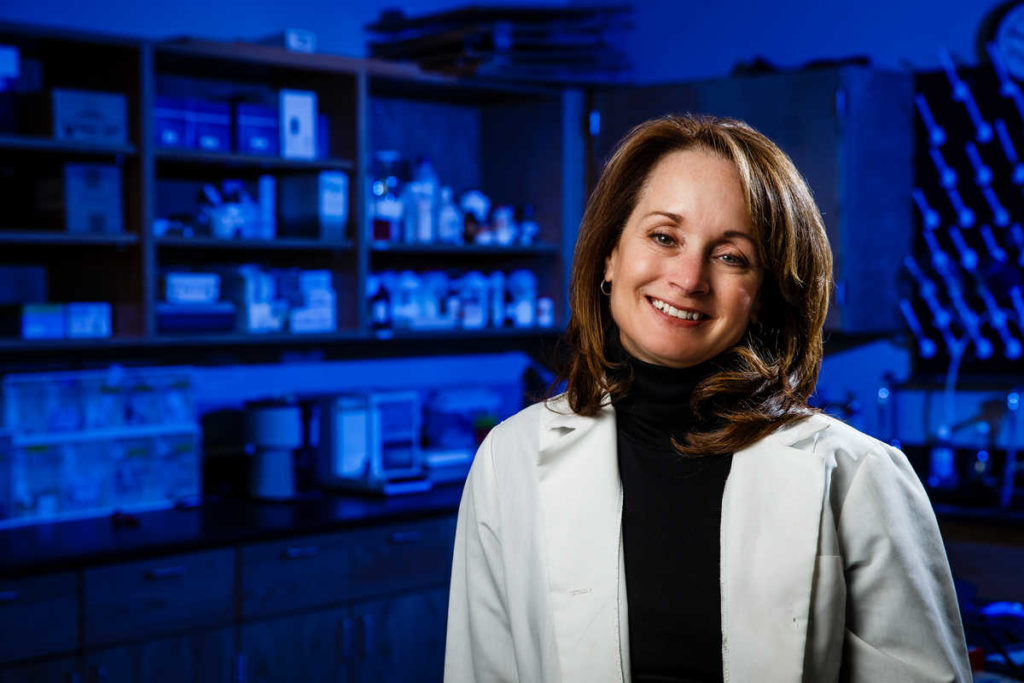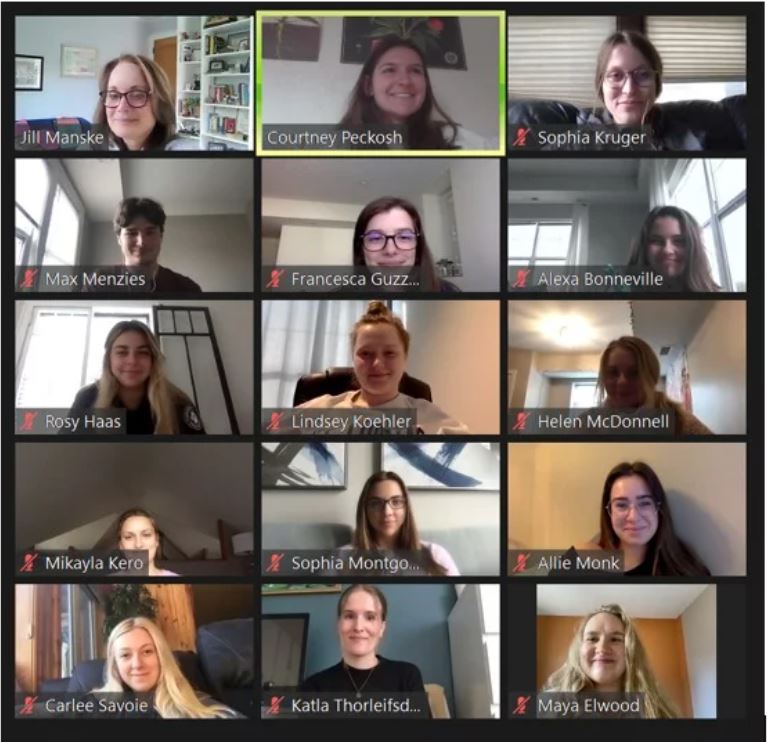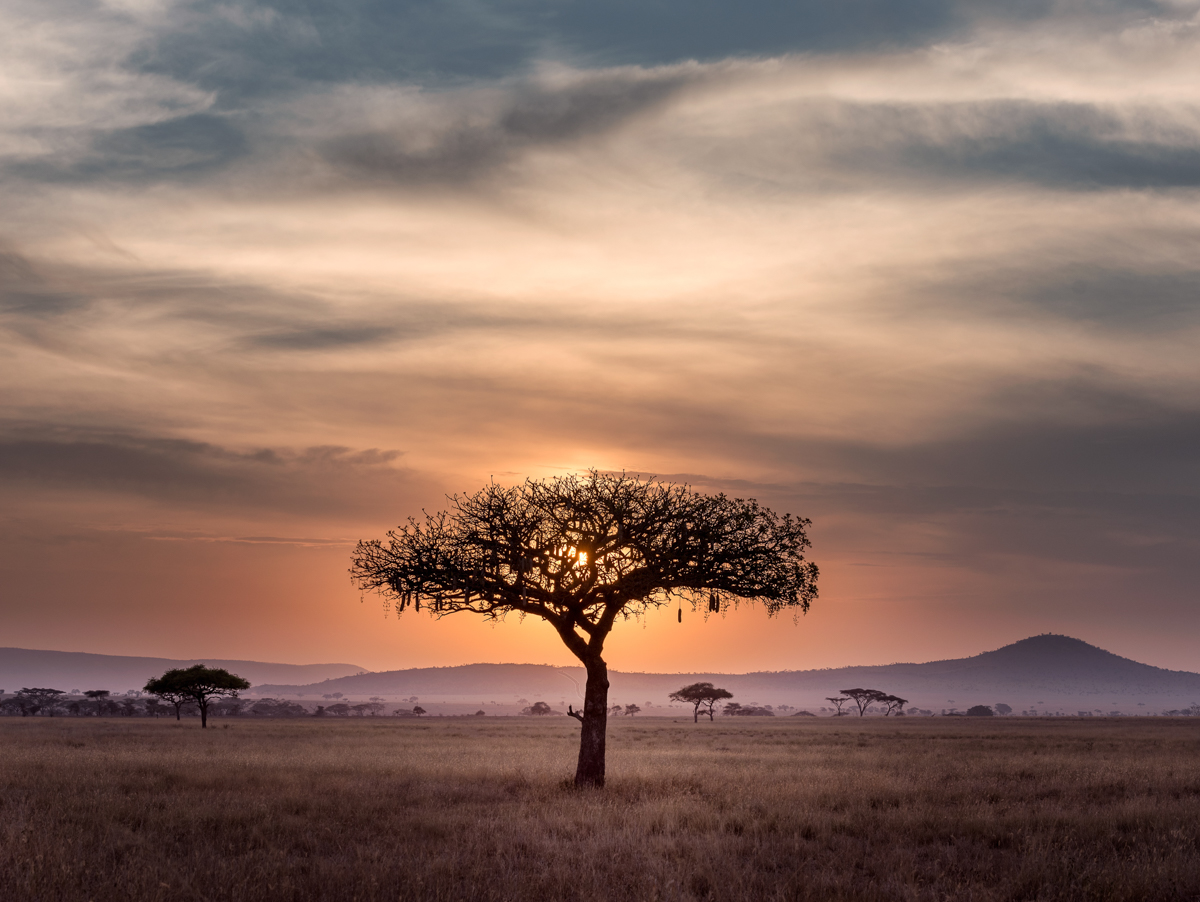At the height of the COVID-19 pandemic, St. Thomas biology students took a semester-long deep dive into a different virus: one that threatened global health nearly a decade ago.
Though Ebola has largely disappeared from headlines since the 2014 epidemic, biology major Carlee Savoie ’22 said she and her classmates were motivated to bring new attention to its impacts, which persist.
“We are really suffering,” is a sentiment Savoie said she and her classmates heard over and over from women they met through the Sierra Leone Ebola Survivors Network. “That will stay with us. Hearing from them really impacted us as a class. It made it even more apparent that we wanted to share their stories with our community.”

Their newly created website, Ebola Women’s Survivor Network, amplifies stories of Ebola survivors. Jill Manske, PhD, their professor of biology, specializes in emerging infectious disease and global health. She’s taught this seminar on emerging infectious disease for more than 10 years, guiding each group of students on a semester-long project, often one that has been requested from a community partner.
Manske said the genesis of this semester’s project was a conversation between longtime community partner West African Medical Missions and the Sierra Leone Ebola Survivors Network. Both organizations work to shore up health vulnerabilities in communities devastated by Ebola and suggested the students research the barriers, obstacles and challenges being experienced by women who were widowed by or survivors of the 2014 Ebola epidemic.
“At the time, the Ebola epidemic received a great deal of global attention. Now, most of the students have no idea that this had occurred,” Manske said. “The biology and trajectory of this emerging disease mirrored many of the things people are experiencing with COVID-19. These themes are important. These events are not ‘one-offs,' and need our vigilant attention.”
The World Health Organization classifies Ebola as severe and often fatal. Globally, there were nearly 11,000 Ebola deaths, along with nearly 30,000 suspected and confirmed cases, according to the WHO. In their Zoom conversations with survivors, Savoie said she and her peers learned about post-Ebola viral syndrome and the impact of these sequelae on the lives of survivors. Survivors have reported long-term physical and mental health issues as well as decreased life expectancy.
“Just because a person survives Ebola, doesn't mean their health issues are over,” Manske said. Again, there are parallels to long COVID. Working to understand these post-viral syndromes has important health impacts for both communities and individuals, as well as very interesting biology to unravel.”
Even after Ebola survivors were no longer contagious, the St. Thomas students discovered how women and children are still victim to fear and stigma about the virus. Their website documents how many people have been orphaned, homeless or have resorted to sex work to survive – all without the humanitarian support they once had to address the ongoing impacts of the virus.
“Perhaps some of the most impactful outcomes of the work were gaining an understanding of what happens to underserved communities after an initial crisis passes,” Manske said. “The communities still have health, policy and infrastructure challenges. These needs continue to be unmet."
As the global community only begins to understand the fallout from COVID-19, this partnership was an opportunity to equip students to advance the common good in their field, while recognizing the importance of communities being empowered to be part of their own story.
“The survivors' stories are going to stay up even though our semester is over,” Savoie said. “We wanted a living piece of work where future classes could add more information. We hope people will educate themselves on something that is underrepresented in the news, and that they will take action to help these women.”








